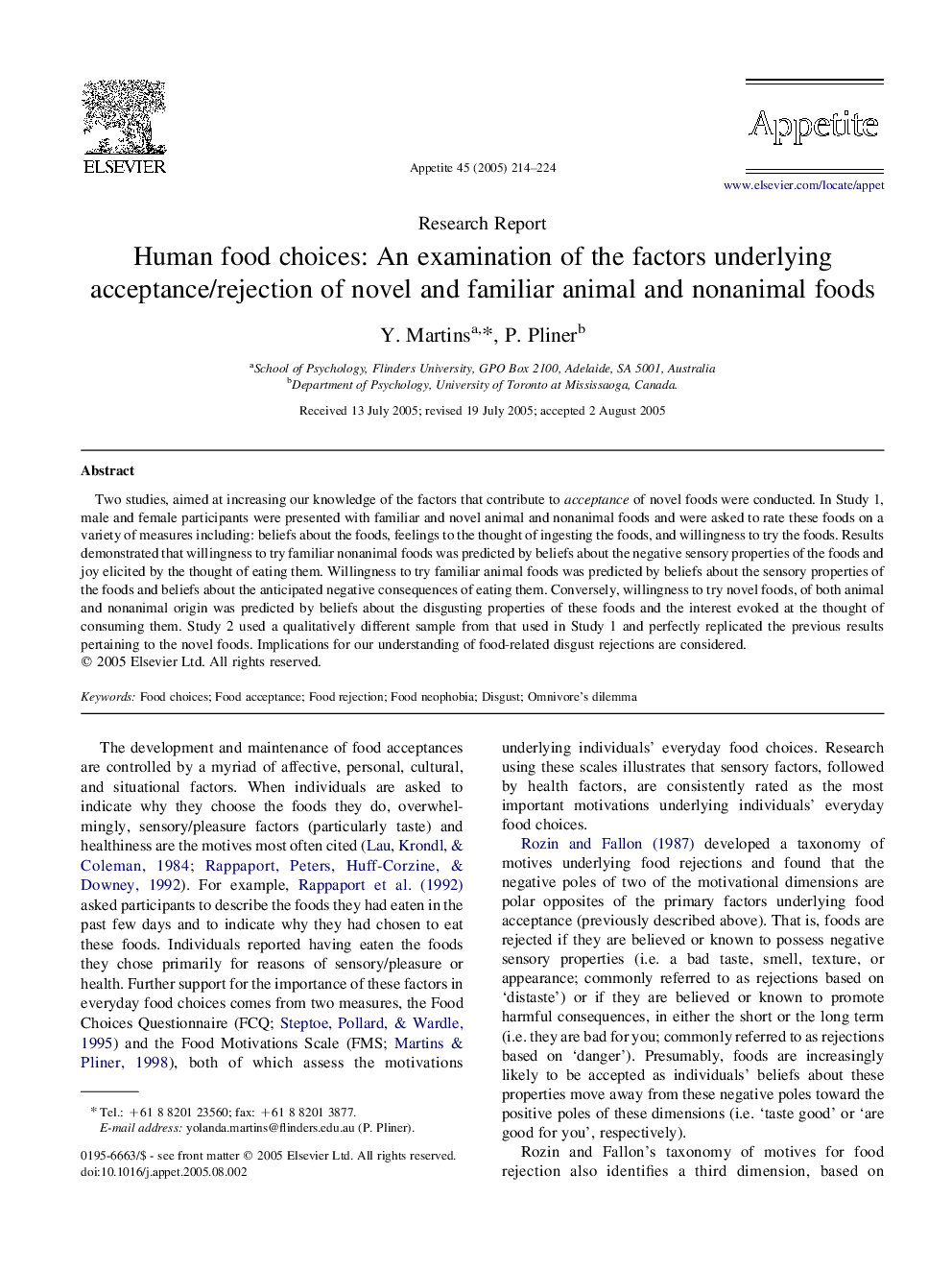| Article ID | Journal | Published Year | Pages | File Type |
|---|---|---|---|---|
| 10462637 | Appetite | 2005 | 11 Pages |
Abstract
Two studies, aimed at increasing our knowledge of the factors that contribute to acceptance of novel foods were conducted. In Study 1, male and female participants were presented with familiar and novel animal and nonanimal foods and were asked to rate these foods on a variety of measures including: beliefs about the foods, feelings to the thought of ingesting the foods, and willingness to try the foods. Results demonstrated that willingness to try familiar nonanimal foods was predicted by beliefs about the negative sensory properties of the foods and joy elicited by the thought of eating them. Willingness to try familiar animal foods was predicted by beliefs about the sensory properties of the foods and beliefs about the anticipated negative consequences of eating them. Conversely, willingness to try novel foods, of both animal and nonanimal origin was predicted by beliefs about the disgusting properties of these foods and the interest evoked at the thought of consuming them. Study 2 used a qualitatively different sample from that used in Study 1 and perfectly replicated the previous results pertaining to the novel foods. Implications for our understanding of food-related disgust rejections are considered.
Related Topics
Life Sciences
Agricultural and Biological Sciences
Food Science
Authors
Y. Martins, P. Pliner,
